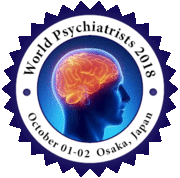
Biography
Biography: Lakshmi Kalband
Abstract
Statement of the problem: What if the food we eat is therapy? Dietary therapies have been attempted in a wide variety of neurological disorders including epilepsies, headache and other pains, autism, brain tumors, neuro-trauma,sleep disorders, multiple sclerosis, Alzheimer’s disease and Parkinson’s disease. The driving force for the development of dietary therapies is the lack of efficiency and/or the intolerable side effects of the drugs, coupled with the intrinsic appeal of seeking more natural treatments. The efficiency of dietary therapies is best exemplified by the proven efficiency of ketogenic diet in medically intractable epilepsies. The diet now has broader use in neurological disorders and is practiced widely in epilepsies.
Method: This discussion focuses on the role of ketogenic diet and its applications in childhood neurological disorders and utility as disease modifying therapy. It includes a brief review of the pathophysiological mechanisms that cause the benefits derived from ketosis. A practical approach to starting a ketogenic diet in centers will be discussed. And the future of dietary therapies and applications in neurology will be reviewed.
Result: There is emerging literature supporting the broad use of the ketogenic diet and its variants against a variety of neurological conditions. Repurposing the diet for more conditions including cancer could be a cost effective remedy that needs to be researched.
Conclusion: The discussion is intended to bring forth the benefits of using natural remedies through dietary modifications to cure complex neurological disorders, where drugs and other interventions have limited roles.

